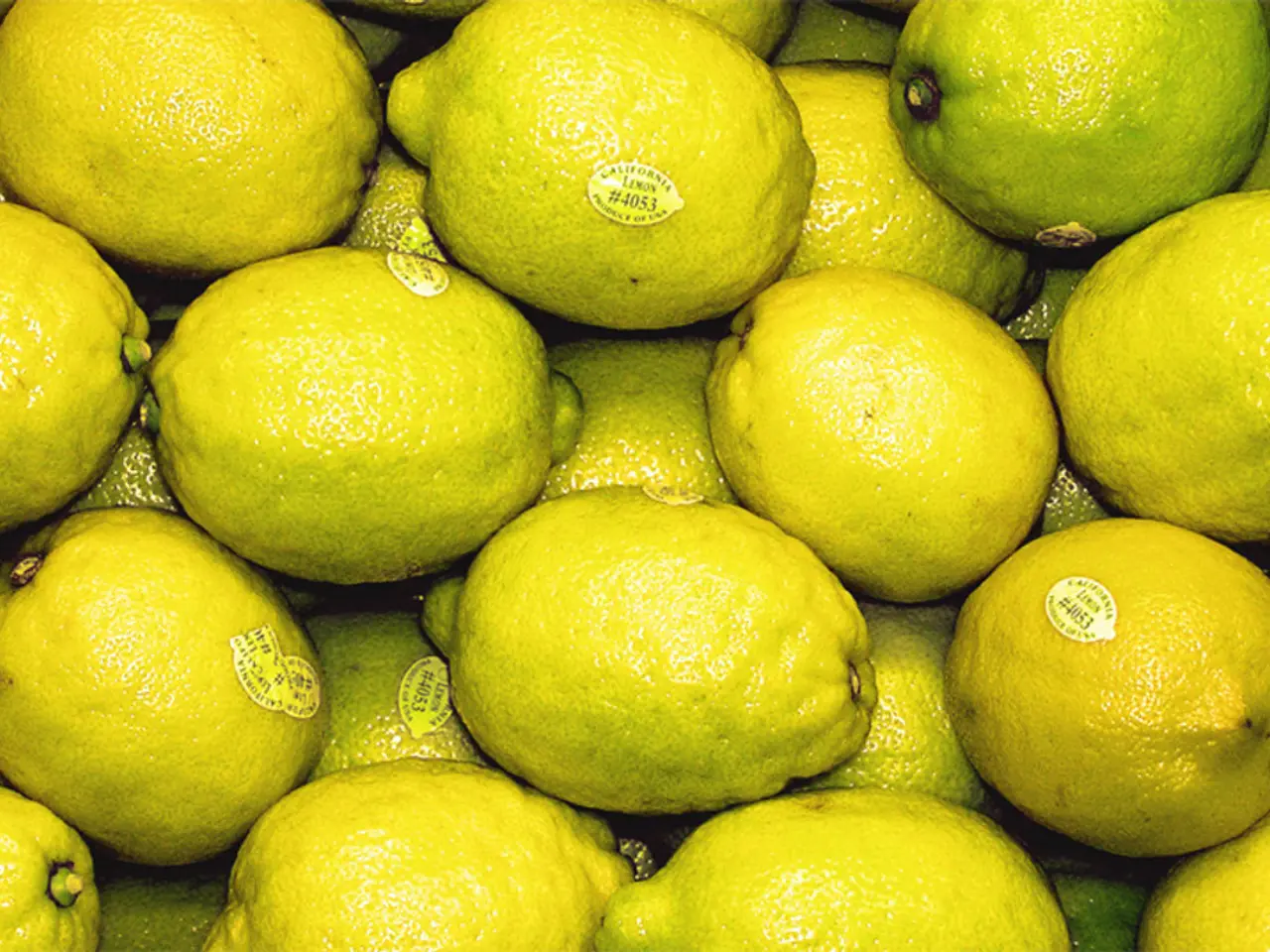Acne treatment with lemons: Effectiveness and application methods explained
Lemon, a popular household item, has long been used in skincare remedies, including as a potential acne treatment. However, the scientific evidence supporting its effectiveness and safety for treating acne is limited and mixed.
### Effectiveness
One of the key components of lemons, limonene, has antimicrobial and anti-inflammatory properties that could potentially combat bacteria linked to acne formation and reduce inflammation. Additionally, lemons are rich in vitamin C, which promotes tissue regeneration, collagen formation, and antioxidant benefits, aiding in wound healing and improving skin elasticity.
However, it's important to note that while these properties could theoretically aid in acne treatment, there is no direct, robust scientific evidence linking lemon juice or essential oil to significant improvements in acne symptoms.
### Safety
Despite its potential benefits, lemon juice's high acidity can cause irritation or make the skin more sensitive, potentially worsening acne or leading to post-inflammatory hyperpigmentation (PIH). Furthermore, using undiluted lemon juice can lead to an uneven skin tone or hyperpigmentation.
Moreover, as home remedies like lemon juice are not standardized, their safety and effectiveness can be unpredictable and variable among individuals.
### Conclusion
While lemon has some beneficial properties that could theoretically aid in acne treatment, the scientific evidence supporting its use as a reliable and safe acne treatment is limited. Scientific treatments for acne, such as topical retinoids, benzoyl peroxide, or antibiotics, are more effective and safer due to their standardized formulations and clinical evidence.
Dermatological guidance is recommended for optimal results and minimizing risks. If you choose to use lemon as an acne treatment, it's advisable to dilute lemon juice in water before application to the skin, and consult a dermatologist for appropriate usage and ratios. Fresh lemon juice may be better than store-bought due to the absence of added sugars or other ingredients.
Some people claim success with lemon as an acne treatment, attributing it to its potential to prevent inflammation or reduce oil and bacteria. However, it's crucial to remember that individual skin types and acne severity can significantly impact the effectiveness of any treatment.
The American Academy of Dermatology (AAD) recommends avoiding excessive sun exposure and using lukewarm water to cleanse the skin for acne skincare. As of now, it is not clear whether lemon products have any effect on acne scars.
- A diluted application of lemon juice on the skin, combined with a well-rounded skincare routine that includes a moisturizer, might help reduce oiliness, thanks to its astringent properties.
- Think about mental health and wellness too, as caring for your skin goes beyond physical health; a positive mindset can reflect positively on your overall appearance.
- The dermatology field offers a wealth of science-backed skincare solutions for acne, and following professional advice in a mental-health-conscious manner will ensure the best results for your skin-care journey.
- In the realm of skincare, a balanced and research-driven approach that focuses on topical retinoids, benzoyl peroxide, or antibiotics, supported by clinical evidence, is far more reliable and effective than relying on homemade remedies such as lemon juice.





